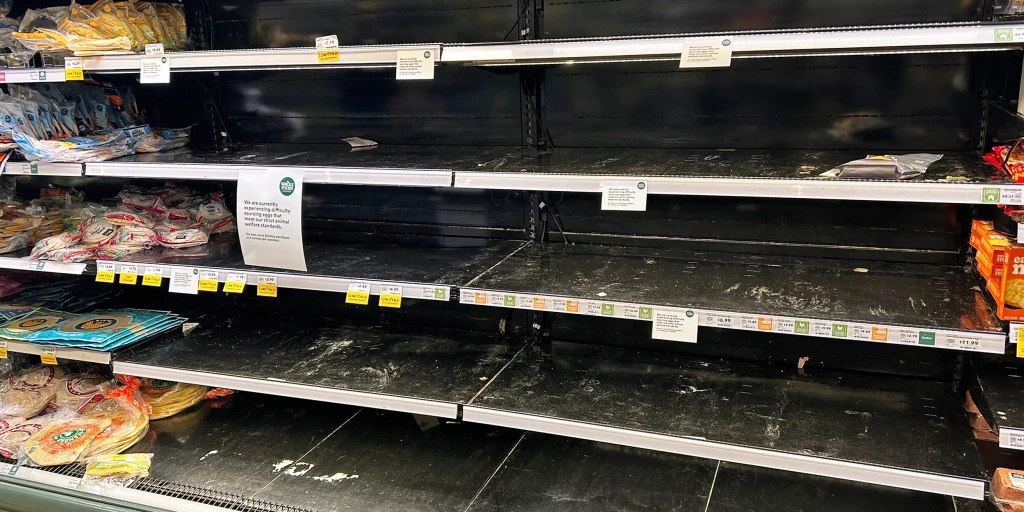Avian flu sparks severe egg shortages in U.S. markets

Egg shortages continue to impact American food markets, with experts warning the situation may not improve for several months.
The highly contagious avian influenza has devastated the egg industry, killing 17.2 million egg-laying hens in November and December alone—nearly half of all birds lost to the virus in 2024, according to the U.S. Department of Agriculture.
Emily Metz, president and CEO of the American Egg Board, explained the challenges in restoring egg supplies, saying, “We can’t begin fixing it the next day.
It is really a six-to-nine-month process. It’s causing some shortages in certain markets that are intermittent and localized.”
The reduction in egg-laying hens has led to fewer eggs, sporadic availability in stores, and surging prices.
NielsenIQ data provided by the American Egg Board showed that the average price for a dozen eggs rose to $4.33 at the end of December, marking a nearly 25% increase from early November.
Over the year, prices climbed significantly, with a 37.5% year-over-year increase recorded in November, according to the Consumer Price Index.
At a King Cullen supermarket in Island Park, New York, a sign on empty egg shelves acknowledged the situation: “As a part of Avian Influenza, select egg varieties may be temporarily out of stock.”
Publix, a grocery chain with about 1,500 stores in the southern United States, also confirmed shortages.
“Items in this section have limited availability. We are working to bring these products back as soon as possible,” the company said in a statement.
Although egg prices typically rise during the holidays due to increased demand, this year’s spike was compounded by avian flu and has persisted well beyond the season. Instead of stabilizing, supplies have dwindled further.
Avian flu has also spread to nearby dairy farms, exacerbating the crisis. Extreme weather events have contributed to the virus’s transmission.

“Hurricanes in the southeastern United States last year actually picked up those wild birds and repositioned them so that they were flying back over the same territory that they already flew over,” Metz explained. “That just provides a greater opportunity for the virus to spread.”
Steve Schwartz, director of sales and marketing at Morton Williams, a grocery chain in the New York City area, described the financial strain caused by skyrocketing egg prices.
“Our cost just skyrocketed. It was crazy,” Schwartz said, adding that even with multiple distributors, prices remain alarming.
In mid-October, Morton Williams paid $2.38 for a dozen conventional eggs. By January, the cost had climbed to $5.48, even after a 70-cent discount from distributors.
Schwartz shared his concerns after speaking with a farm about when the situation might improve. “When I asked the question: ‘When do you expect to see relief?’ their reply was concerning,” he said. “They didn’t have an answer for me.”
With no immediate resolution in sight, experts and retailers are bracing for continued challenges in egg supply and pricing.
Source-CNN





